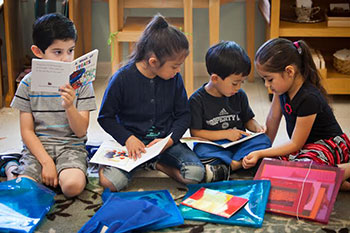Why Montessori?
The Case for Early Childhood and Montessori Education
There is now indisputable evidence that investment in children and families during the first few years of development has far reaching results:
Maria Montessori was among the earliest educational reformers to identify the first plane of development — birth to age six — as critical to establishing core social, emotional, physical and intellectual capacities. While Montessori education has been practiced for more than 100 years, Montessori’s emphasis on the early years has been increasingly validated by contemporary science, including the latest findings in brain development, language acquisition and preventative intervention.
- Early childhood is a crucial period for brain development, a period when the brain is most malleable and when parents are eager to adopt childrearing practices that will set their children on a path to success.
- Investment in quality early childhood services has been shown to realize a significant savings in future pubic expenditures. Nobel winning economist James Heckman’s most recent research analyzed The Carolina Abecedarian Project (ABC) and the Carolina Approach to Responsive Education (CARE) comprehensive, high-quality, birth-to-five early childhood programs for disadvantaged children. These programs yielded a 13% return on investment per child, per annum through better education, economic, health, and social outcomes.1
Footnotes:
- Jorge Luis García, James J. Heckman, Duncan Ermini Leaf, and Maria Jose Prados “The Life-cycle Benefits of an Influential Early Childhood Program” Human Capital and Economic Opportunity Working Paper Series. (December 19, 2016)